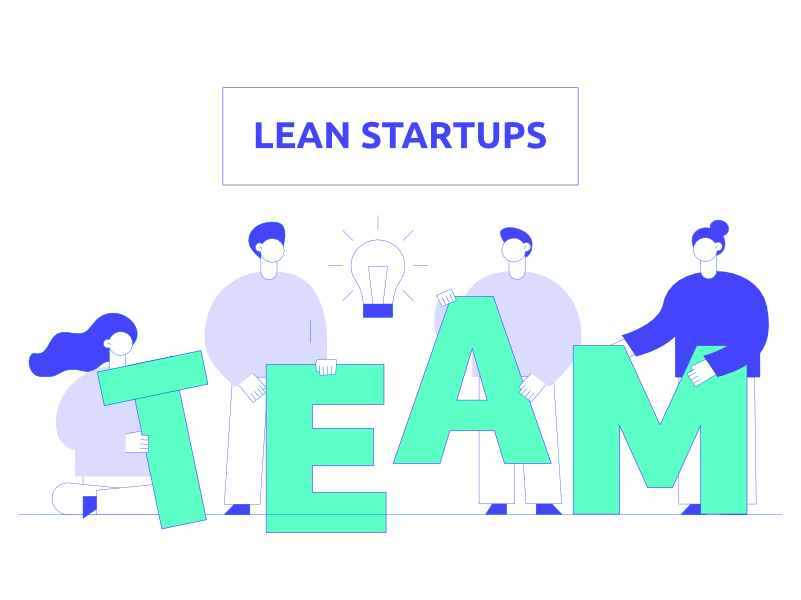
In the fast-paced and resource-constrained world of startups, particularly those in the Indian ecosystem, adopting a lean culture is not just a strategy—it's a necessity. This approach, characterized by maximizing efficiency and enhancing team dynamics, is vital for startups, especially bootstrapped ones, to thrive amidst fierce competition and limited resources.

Lean culture in the context of Indian startups means doing more with less. It's about being agile, responsive, and efficient. Indian startups like Zerodha, a leading financial services company, and Freshworks, a global SaaS leader, have demonstrated how lean principles can drive success even with limited initial funding.
Agile methodologies, originally developed for software development, have now been embraced across various sectors. They involve iterative development, where projects are divided into small parts, allowing for frequent reassessment and adaptation. A great example is Bangalore-based Byju's, an ed-tech company that rapidly adapted its offerings during the pandemic, reflecting agile principles in action. Dunzo manages real-time logistics, optimizes delivery routes, and continuously improves its app based on user feedback.
Continuous feedback is crucial in a lean culture. It helps startups stay aligned with their goals and quickly adapt to market changes. Consider the example of Ola, an Indian mobility startup. Ola's continuous feedback from customers and drivers has been instrumental in its iterative service improvements.
In a lean startup environment, prioritizing tasks ensures that the team focuses on activities that add the most value. Paytm, a major player in India's digital payment sector, exemplifies this by focusing on key areas like user experience and security, leading to substantial growth and customer trust.
Internal Feedback: Create channels for regular internal feedback among team members. This could be through daily stand-up meetings, retrospectives, or continuous performance discussions.
Customer Feedback: Actively seek customer feedback through surveys, user testing sessions, and direct communication. Use this feedback to guide product development and service improvement.
Adapt Based on Feedback: Be prepared to rapidly iterate and make changes based on the feedback received. This adaptability is crucial in a lean startup environment.
Identifying Core Objectives: Clearly define what is essential for the success of your startup. This could be key features, market segments, or growth metrics.
Eisenhower Matrix: Utilize the Eisenhower Matrix to categorize tasks by urgency and importance, helping to focus on what truly matters.
Avoiding Overcommitment: Be wary of spreading resources too thin. Focus on delivering value in a few critical areas rather than trying to do everything.
Lean Canvas: Adopt the Lean Canvas as a strategic planning tool to outline and test business models quickly.
Minimize Waste: Apply principles from lean manufacturing to reduce waste in processes, be it time, resources, or effort.
Continuous Improvement (Kaizen): Foster a culture of continuous improvement (Kaizen) where small, incremental changes are regularly made to processes and products.
Encourage Experimentation: Create a safe space for experimentation where failure is seen as a learning opportunity.
Reward Creativity: Recognize and reward innovative ideas and solutions, even if they don’t always lead to success.
Diverse Perspectives: Encourage diverse perspectives and interdisciplinary collaboration to spur creativity and innovation.
Implementing a lean culture in a startup is about more than just adopting new processes; it’s about fostering a mindset of continuous improvement, adaptability, and efficiency. By embracing agile frameworks, establishing feedback loops, prioritizing effectively, utilizing lean tools, and fostering a culture of innovation, startups can navigate the challenges of growth and competition more effectively. This approach not only leads to better products and services but also creates a dynamic and engaging work environment.